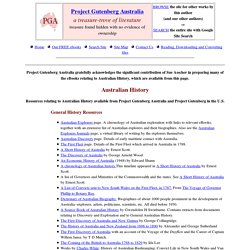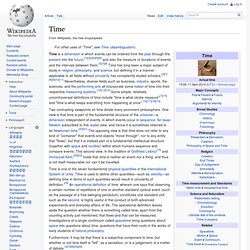

AUSTRALIAN HISTORY, INFORMATION ABOUT AUSTRALIAS PAST, ABORIGINAL HISTORY IN AUSTRALIA, THINGS THAT HAVE HAPPENED IN AUSTRALIA, KEY DATES IN AUSTRALIAN HISTORY. The first settlers are thought to have arrived around 50,000 years ago.

This would have most likely been at a time when the sea levels were low, the land was more humid and animals larger. Although much of Australia became populated, the central dry areas didn't attract settlers until around 25,000 years ago. The population grew proportionately quicker around 10,000 years ago as the climate improved. At the time of British settlement at Sydney Cove it is estimated that 300,000 aboriginal people, speaking around 250 languages inhabited Australia.
On arrival, finding no obvious political structure, the Europeans took the land as their own. During the early part of the 20th century legislation's were passed to segregate and protect Aboriginals. After World War II, assimilation became the governments aim. During the 1960's the legislation was reviewed and the Federal Government passed legislation for all Aboriginals to be given citizen status.
Australian History. Home Search Site Contact Us Site Map Our FREE ebooks Help to download and convert files on this site Project Gutenberg Australia gratefully acknowledges the significant contribution of Sue Asscher in preparing many of the eBooks relating to Australian History, which are available from this page.

Australian History Resources relating to Australian History available from Project Gutenberg Australia and Project Gutenberg in the U.S. Links to other sites covering Australian History John White, surgeon on the First Fleet to sail to Australia, in 1787-88. The first authenticated discovery of Australia was by William Jansz in 1606. The convicts were put on board the ships of the First Fleet in March 1787 and arrived at Sydney Cove on 26 January, 1788--the day now commemorated as "Australia Day". Another account, "Journal of a Voyage to New South Wales", by John Wright, Surgeon-General to the Settlement, was first published in 1790.
Quite a recommendation! Watkin Tench James Tucker, convict novelist. History. Those who cannot remember the past are condemned to repeat it.[1] History (from Greek ἱστορία, historia, meaning "inquiry, knowledge acquired by investigation")[2] is the study of the past, particularly how it relates to humans.[3][4] It is an umbrella term that relates to past events as well as the memory, discovery, collection, organization, presentation, and interpretation of information about these events.

Scholars who write about history are called historians. Events occurring prior to written record are considered prehistory. History can also refer to the academic discipline which uses a narrative to examine and analyse a sequence of past events, and objectively determine the patterns of cause and effect that determine them.[5][6] Historians sometimes debate the nature of history and its usefulness by discussing the study of the discipline as an end in itself and as a way of providing "perspective" on the problems of the present.[5][7][8][9] Etymology Description Historiography. Time. The flow of sand in an hourglass can be used to keep track of elapsed time.

It also concretely represents the present as being between the past and the future. Time is a dimension in which events can be ordered from the past through the present into the future,[1][2][3][4][5][6] and also the measure of durations of events and the intervals between them.[3][7][8] Time has long been a major subject of study in religion, philosophy, and science, but defining it in a manner applicable to all fields without circularity has consistently eluded scholars.[3][7][8][9][10][11] Nevertheless, diverse fields such as business, industry, sports, the sciences, and the performing arts all incorporate some notion of time into their respective measuring systems.[12][13][14] Some simple, relatively uncontroversial definitions of time include "time is what clocks measure"[7][15] and "time is what keeps everything from happening at once".[16][17][18][19] Temporal measurement and history[edit] World time[edit]